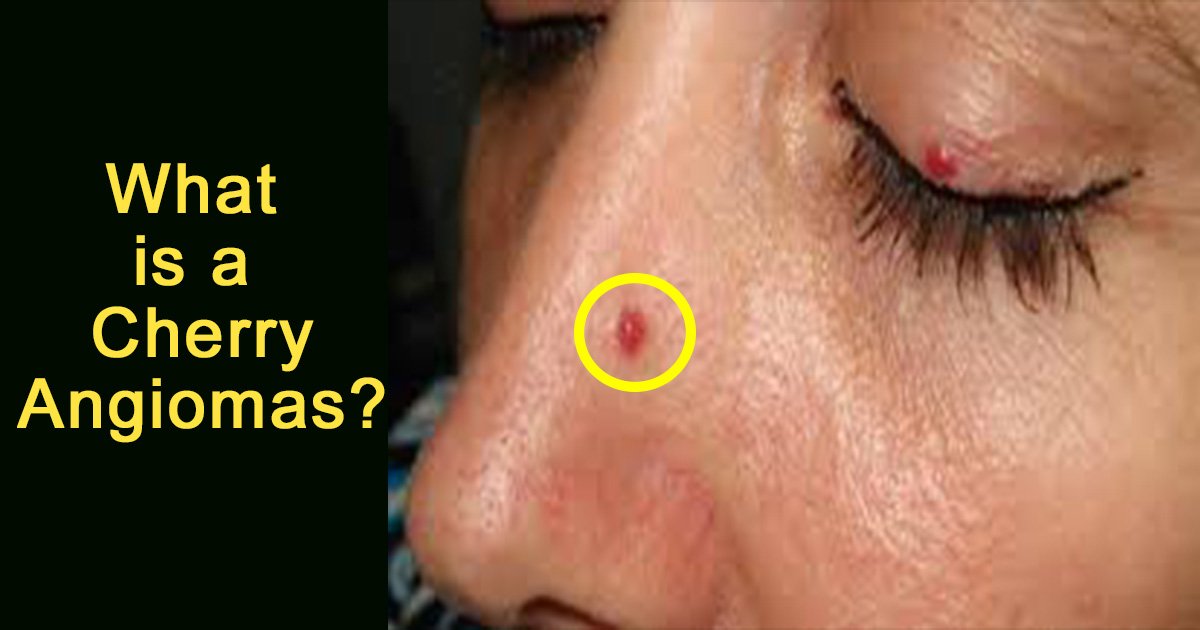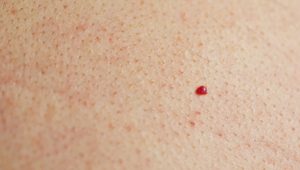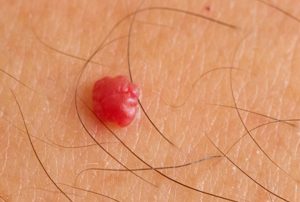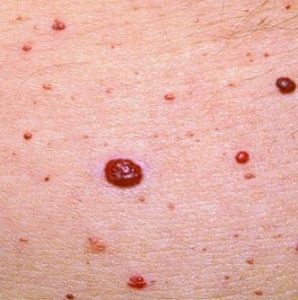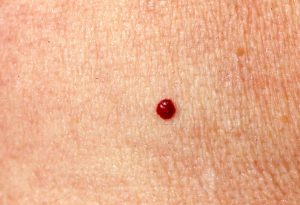If your body has ever experienced little red bumps on the skin of your back, stomach and chest regions, they are called cherry angiomas.
It is a common phenomenon and almost 50% of the adults aged above 30 years experience it.
These little red bumps are nothing but blood vessels and are hereditary. According to the reports by Medical News Today, these small skin growths are normally red in color but they some time appears to be purple and blue. When you put some pressure on it, it turns white.
The cherry angiomas can change their shape and color over time and can go from bump to flat. Those who it must be very careful while they shave because a little extra pressure with the blade and it will cause bleeding.
They are not harmful, but if you see them constantly changing their color, size, and texture and are covering all over your body, then you should see a doctor.
Cherry angiomas are often confused for spider angiomas due to its similar structure and texture. Spider angioma is a type of mole, red in color which is slightly different from cherry angioma.
Their texture is darker from the center and has reddish webs extending out from the center. According to the doctors, spider angiomas are often related to liver problems.
Moreover, if you have cherry angiomas, then you don’t have to worry about it unless it starts to change its color. They don’t cause any long-term health problems neither do they are a sign of a tumor or cancer.
There are numerous factors that lead to cherry angiomas. It usually is hereditary, but if you find one in your skin even without any family history, then it is considered as a sign of hormonal change or liver dysfunction.
Moreover, a study found that chemical bromide is responsible for creating a hormonal imbalance in humans. Chemical bromide is extensively found in plastic, prescription drugs, and several other baking products.
So, if you experience anything sort of little red bumps on your skin, you should immediately consult your doctor and get it tested.
If you loved this inspiring story, we would love to hear from you :)
Recommended Video!
“The Color Of Blood In Your Pad Will Tell You A Lot About Your Health”


